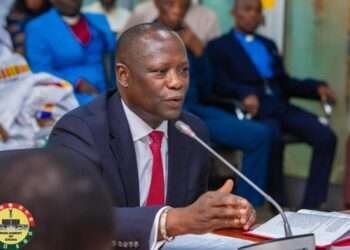The recent appreciation of the cedi has created a new challenge for diaspora remittances, with legal expert and governance analyst Prof. Stephen Kwaku Asare warning that the country risks undermining economic recovery if inflows from the diaspora continue to decline.
He pointed out that although the stronger local currency is a sign of improving macroeconomic indicators, it has triggered a significant 50% drop in remittance inflows—a development the Bank of Ghana has confirmed.
According to Prof. Asare, this shift stems from the basic economic behavior of senders who are holding back in anticipation of better exchange rates.
The stronger cedi now yields fewer local currency units per dollar, euro, or pound, which has led many in the diaspora to delay remittances.
“But fellow diasporas, viewing remittances through that lens, miss the point entirely. Remittances are not just personal transfers. They are lifelines.
“In 2024, Ghana officially recorded US$6.65 billion in remittance inflows. But when we include informal remittances, the untracked cash sent through friends, family, and travelers, the total rises to an estimated US$11.5 billion.”
Prof. Stephen Kwaku Asare
Prof. Asare stressed that this figure amounts to nearly half of the country’s total export earnings and more than double the foreign direct investment attracted in the same year.
Accordingly, he urged Ghanaians abroad to look beyond the mathematics of exchange rates.

He argued that diaspora remittances are not just casual money transfers—they are essential contributions that power significant aspects of Ghana’s economy.
Remittances provide financial lifelines that cover education costs, hospital bills, home building projects, and entrepreneurial activities. These flows bypass bureaucratic delays and are often more impactful than aid or traditional investments.
With the cedi appreciating by over 40% against the dollar, 31% against the pound, and 24% against the euro, senders are now recalculating.
However, Prof. Asare insisted that this is not the time to hold back, because this very progress is precarious.
Diaspora Remittances Still Needed Despite Strong Cedi
The recent currency gains reflect improvements in inflation control, stronger reserves, and increased investor confidence. Yet these advances need to be supported and sustained, and diaspora remittances remain a critical pillar of that support.
According to Prof. Asare, the money sent from abroad helps ease pressure on foreign exchange reserves, fuels local consumption, and stabilizes the balance of payments.
The drop in inflows, however, threatens to undo this progress. Prof. Asare warned that pulling back on remittances during a recovery phase could compromise the macroeconomic improvements that the country is just beginning to enjoy.

“Let’s be clear: remitting is not just a personal gesture. It is an act of economic citizenship. This is the argument DUCRIPS has made in its pursuit of the Constitution Amendment Bill that stands to be passed soon.
“When the cedi weakens, the diaspora sends money to help. When it strengthens, they must send to sustain.”
Prof. Stephen Kwaku Asare
In his view, sending money to Ghana should not be solely influenced by favorable exchange rates but by the needs and aspirations of the nation.
Prof. Asare also made it clear that the argument to remit remains unchanged, despite inflation declines.
The price of building materials like cement, iron rods, and roofing sheets has not dropped significantly, meaning the financial needs of relatives and communities remain the same.
The apparent economic gains have yet to translate into reduced cost of living for many Ghanaians.
Therefore, withholding funds on the assumption that fewer cedis are now received per dollar overlooks the broader impact those funds continue to make.

According to Prof. Asare, Ghana needs its diaspora to be consistent in their support regardless of currency fluctuations.
He stressed that the exchange rate will always shift, but the nation’s needs—and the responsibility of Ghanaians abroad—should remain constant. It is precisely in moments of economic transition that the country requires stability in inflows, especially those that reach households directly.
With this in mind, Prof. Asare issued a direct call to action for members of the Ghanaian diaspora.
He reminded them that their role goes beyond personal remittances—it is about reinforcing national stability and prosperity.“Remit today—for God and Country.”




















